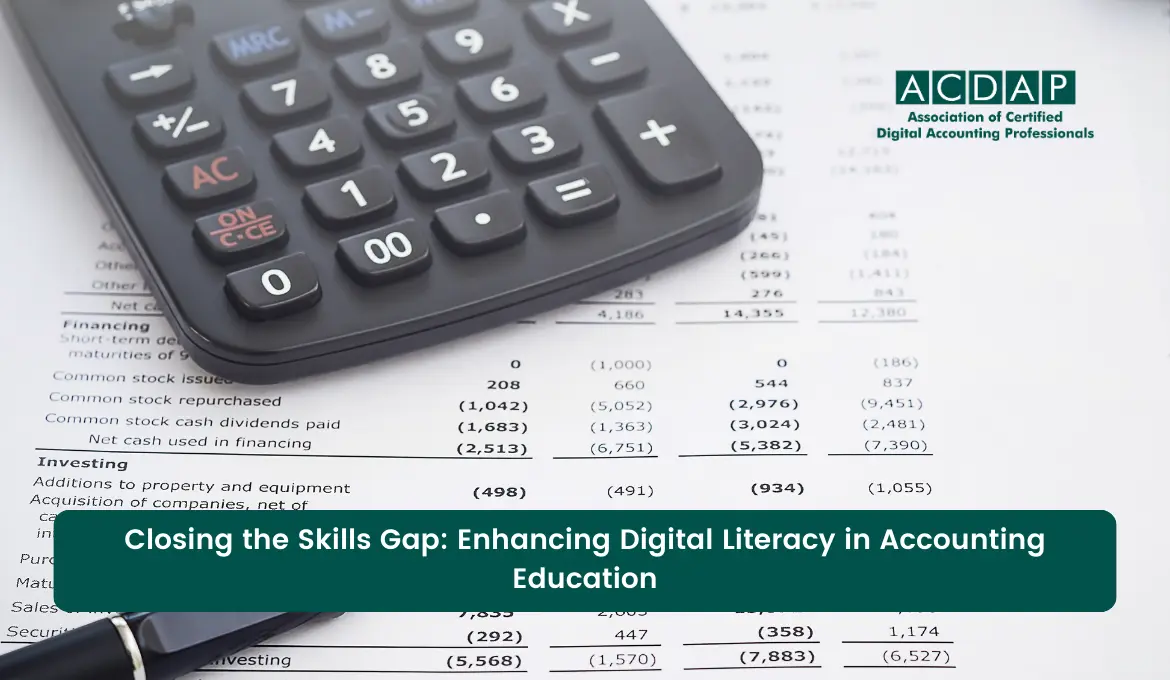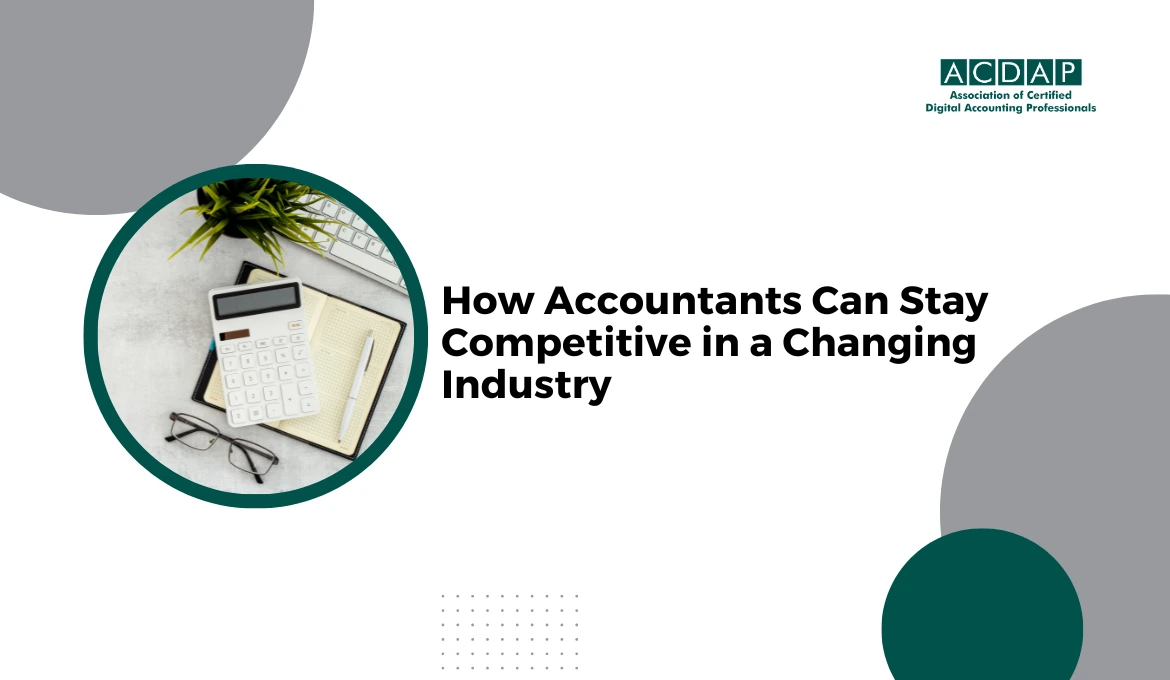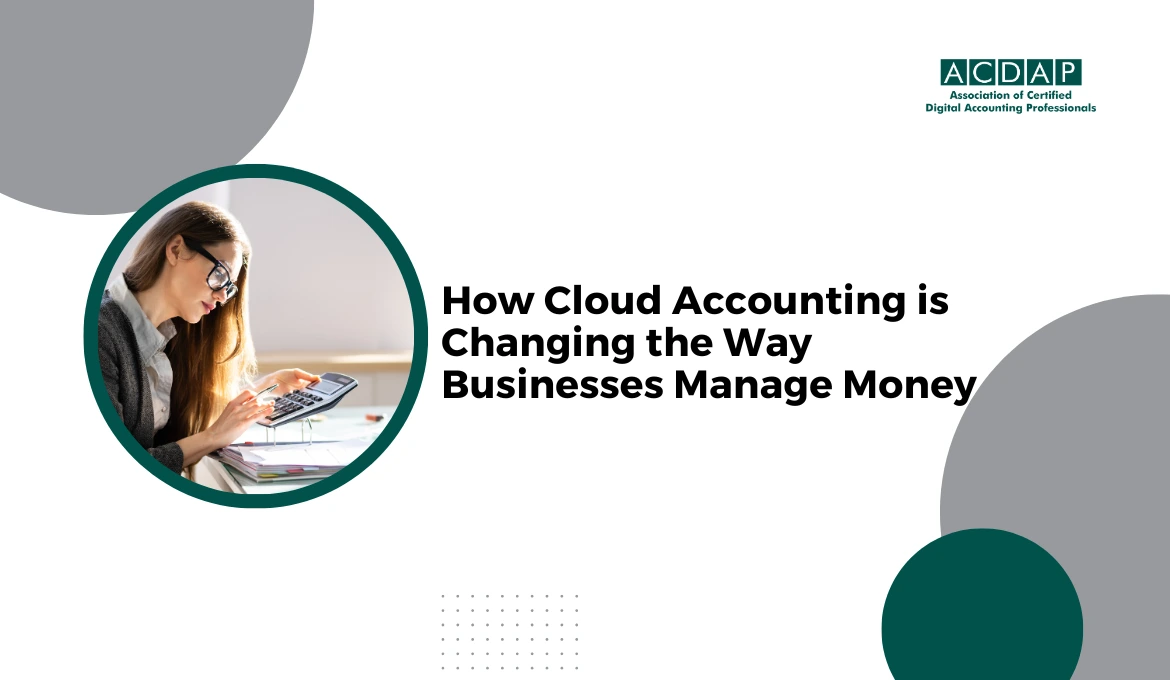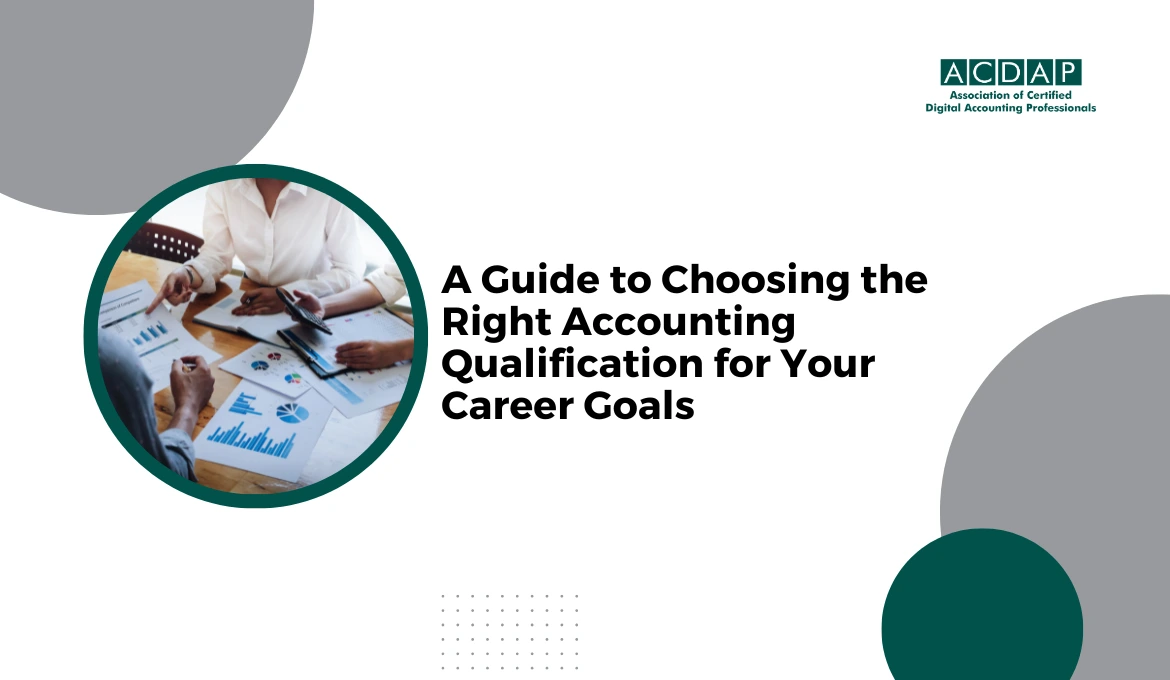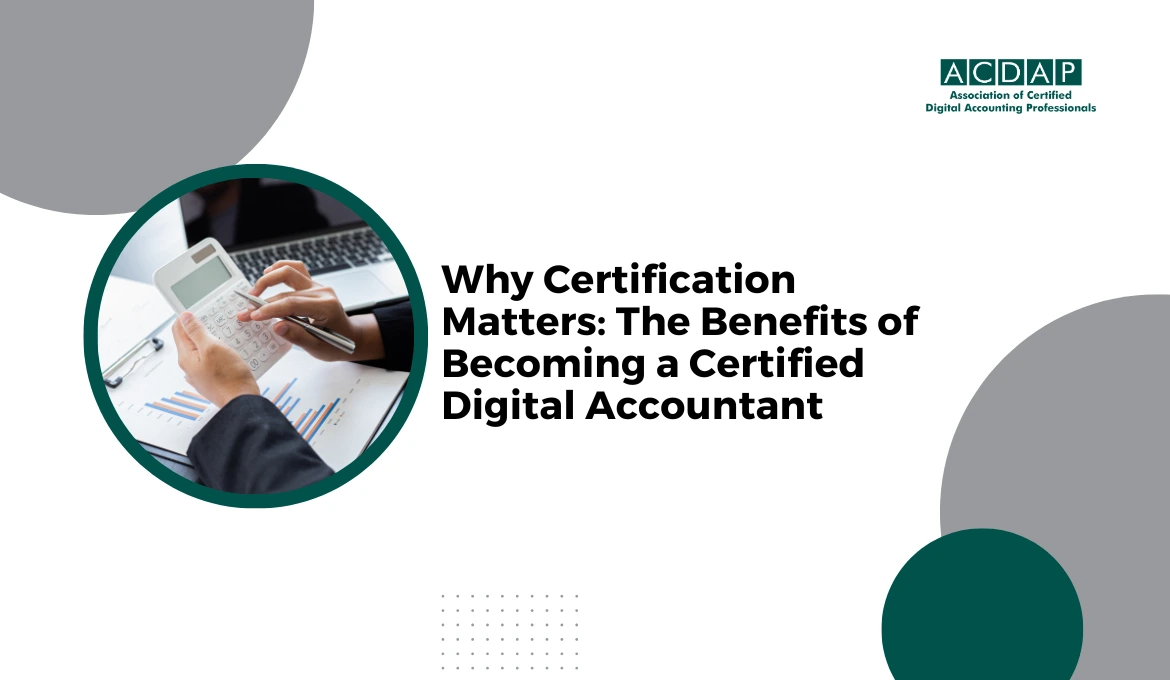In today's rapidly evolving business landscape, digital literacy is not just a desirable skill—it's a necessity. This is particularly true in fields like accounting, where technology is integral to financial management and analysis.
However, there is a significant gap between traditional accounting education and the digital skills that employers now demand, a gap that urgently needs to be addressed.
In this blog, we'll explore the importance of enhancing digital literacy in accounting education, the challenges faced in bridging the skills gap, and strategies to equip accounting students with the digital skills needed to succeed in the modern workplace.
The Importance of Digital Literacy in Accounting
Accounting has undergone a meaningful transformation with digital technologies, including cloud-based accounting platforms, data analytics tools, and automation software.
These technologies have revolutionised how financial data is collected, analysed, and reported, requiring accountants to possess traditional accounting knowledge and proficiency in digital tools and techniques.
Digital literacy in accounting encompasses a range of skills, including:
- Proficiency in Accounting Software: Familiarity with popular accounting software such as QuickBooks, Xero, and Sage is essential for efficiently performing tasks like bookkeeping, invoicing, and financial reporting.
- Data Analytics Skills: The ability to analyse sizeable financial data volumes using tools like Excel, Tableau, or Power BI enables accountants to uncover insights, identify trends, and make data-driven decisions.
- Understanding of Automation and AI: Knowledge of automation technologies, robotic process automation (RPA), and artificial intelligence (AI) allow accountants to automate routine tasks and improve productivity.
- Cybersecurity Awareness: Understanding cybersecurity risks and best practices for safeguarding financial data is critical for protecting against cyber threats and data breaches.
Enhancing digital literacy in accounting education is not just about meeting industry demands, it's about empowering students to adapt to the changing needs of the profession and excel in their careers. It's about giving them the tools they need to succeed in the modern workplace.
Challenges in Bridging the Skills Gap
Despite the growing importance of digital literacy in accounting, several challenges hinder efforts to bridge the skills gap in accounting education:
- Outdated Curriculum: Traditional accounting curricula often prioritise theoretical concepts over practical skills, leaving students ill-prepared to navigate digital tools and technologies in the workplace.
- Lack of Resources: Many educational institutions need more resources, expertise, and infrastructure to provide comprehensive training in digital literacy, leading to disconnect between academic programmes and industry requirements.
- Resistance to Change: Faculty members may resist incorporating digital technologies into their teaching methods due to a lack of familiarity, time constraints, or institutional barriers.
- Rapid Technological Advancements: The rapid pace of technological change makes it challenging for educational institutions to keep pace with the latest developments in digital accounting tools and techniques.
Strategies to Enhance Digital Literacy in Accounting Education
To address the skills gap and equip accounting students with the digital skills needed for success, educational institutions can implement the following strategies:
- Update Curriculum: Revise accounting curricula to include courses or modules focused on digital literacy, covering accounting software, data analytics, cybersecurity, and automation.
- Hands-On Learning: Provide hands-on training opportunities through practical exercises, case studies, and real-world assignments that allow students to apply digital tools and techniques in simulated accounting scenarios.
- Industry Partnerships: Collaborate with industry partners, accounting firms, and technology providers to develop internship programmes, guest lectures, and workshops that expose students to real-world applications of digital accounting technologies.
- Faculty Training and Development: Offer professional development opportunities and training for faculty members to increase their digital literacy and teaching skills, enabling them to integrate digital technologies into their courses effectively.
- Certification Programmes: Encourage students to pursue certifications in accounting software, data analytics, or cybersecurity, such as Intuit QuickBooks Certification, Microsoft Excel Certification, or Certified Information Systems Auditor (CISA), to demonstrate proficiency in digital skills to potential employers.
- Continuous Learning: Develop a continuous learning culture and professional development among students by providing access to online resources, webinars, and industry events that focus on emerging trends and best approaches in digital accounting.
By implementing these strategies, educational institutions can empower accounting students to develop the digital literacy skills needed to thrive in today's technology-driven business environment and bridge the skills gap between academia and industry.
Conclusion
Closing the skills gap and enhancing digital literacy in accounting education is essential for preparing the next generation of accountants to succeed in the digital age.
By updating curriculum, providing hands-on learning opportunities, fostering industry partnerships, training faculty members, offering certification programmes, and promoting continuous learning, educational institutions can equip accounting students with the digital skills needed to excel in their careers and propel innovation in the accounting profession.
As digital technologies continue to transform the accounting landscape, investing in digital literacy education is vital to ensuring the future success and relevance of the accounting profession in the digital era.
